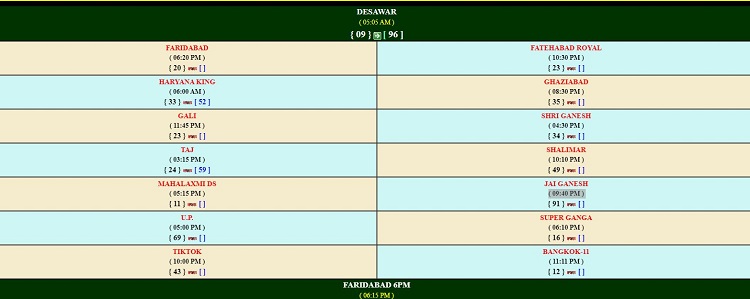Gambling has been a part of human civilization for thousands of years. The act of wagering or betting on the outcome of an event has been prevalent in many cultures around the world. In India, one of the most popular forms of gambling is satta king, which has a long and complex history.
The origins of satta king gambling can be traced back to the time of the British Raj in India. During this period, horse racing was introduced as a popular pastime for the British elite. As a result, many Indian aristocrats also started participating in the sport and soon began to place bets on the outcome of the races.

The term “satta” is derived from the Hindi word for “betting” or “wagering”. Over time, the practice of satta betting spread to other forms of gambling, such as card games and cricket matches. Satta king emerged as a way for people to wager on the outcome of these events, often involving large sums of money.
In the early days of satta king gambling, the game was played in a very different manner from what it is today. There were no official rules or regulations, and players relied on their intuition and luck to win. The game was typically played in small groups, with players placing their bets on a piece of paper.
As satta king gambling became more popular, it also became more organized. The game was eventually standardized, with specific rules and procedures put in place to ensure fairness and transparency. Players would typically choose a number or a combination of numbers and place their bets accordingly.
One of the key factors that contributed to the popularity of satta king gambling was the allure of quick and easy money. Many people were drawn to the game because of the potential to win large sums of money in a short period of time. However, this also led to the rise of illegal satta king operators who exploited the vulnerability of players and often engaged in fraudulent activities.
The government of India eventually recognized the negative impact of illegal satta king gambling and took steps to crack down on the practice. In 1961, the government passed the Public Gambling Act, which made all forms of gambling illegal except for a few specific exemptions such as horse racing and lotteries. This law had a significant impact on the satta king industry, driving many operators underground.
Despite the legal restrictions, satta king gambling continued to thrive in India, with many players finding ways to circumvent the law. Illegal satta king operators would often set up shop in remote locations or operate through underground networks, making it difficult for the authorities to track them down.
In recent years, the rise of online satta king platforms has led to a new era in the evolution of the game. Online satta king websites allow players to place bets from the comfort of their own homes, making the game more accessible and convenient. However, this has also led to a new set of challenges, with many online operators engaging in fraudulent activities and taking advantage of vulnerable players.
In conclusion, the history of satta king gambling in India is a complex and multifaceted one. The game has evolved over time, from a simple form of betting to a highly organized and regulated industry. However, it has also been plagued by issues such as fraud and exploitation, which continue to this day. As satta king gambling continues to evolve, it is important to address these challenges and ensure that the game is played in a fair and responsible manner.
Leave a comment